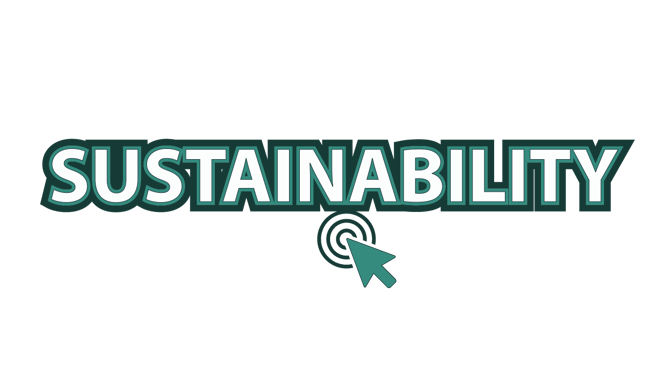Sustainability is certainly a keyword in the business world at the moment, but it cannot be dismissed as a mere trend. Business Wire found that 60% of consumers would happily pay a premium for products from brands with green credentials, whilst Gartner found that 85% of shareholders consider environmental, social and governance (ESG) factors when making investment decisions. ESG reporting is not just necessary for meeting the demands of shoppers and shareholders, it could also be mandatory soon.
The move to monitoring non-financial reporting is gaining real momentum. Gartner also revealed that mentions of ESG data, scores and ratings tripled in the media between 2019 and 2020. And with two-thirds of banks screening loan portfolios for ESG risks, boards cannot afford to ignore the significance of sustainability.
This article explains which rules and regulations in the European Union relate to ESG reporting, to which businesses they apply and how to carry out ESG reporting in an effective and productive manner.
|
Table of Contents
|
What is ESG reporting?
ESG reporting is the disclosure of the company’s progress in terms of KPIs relating to the environment, social issues and corporate governance indicators. Customers, shareholders and other stakeholders can monitor the impact of the organisation within these fields, understanding how well it is delivering on sustainability.
Why is ESG reporting important?
McKinsey says organisations can save up to 60% on business costs by addressing ESG concerns. Although ESG matters can have a bearing on the finances of a company, that is not the biggest motivator for businesses. Getting your ESG strategy right can also help you meet shareholder demands for responsible investing, attract and retain the best young talent, who are more likely to be driven by environmental and social justice concerns, and avoid reputational damage.
Is ESG reporting mandatory?
The short answer is ‘not for everyone (yet)’. According to the European Corporate Governance Institution (ECGI), as of 2017, there were 25 nations around the world that had already made ESG reporting mandatory.
In 2020, ESG reporting is still not mandatory for all organisations in the EU, but some are required to make disclosures under two pieces of legislation – the Non-Financial Reporting Directive (NFRD) and the Sustainable Finance Disclosure Regulation (SFDR).
Even if your company is not bound by disclosure requirements by law at the moment, this could change in the near future. It is also good practice for your business strategy to include details of sustainability metrics such as carbon footprint, board composition and employee engagement in your corporate reporting. You might already face pressure from investors to disclose ESG and sustainability metrics, as they can use them to make investment decisions based on the potential financial risks and reputational risks that come from failing to acknowledge a range of issues in these strategy areas.
Climate-related laws and regulations in the EU
Non-Financial Reporting Directive
The EU’s NFRD covers large public interest entities (PIE) with more than 500 employees and who have either a balance sheet total of more than €20,000,000 or a net turnover of more than €40,000,000. There are around 11,700 of these in the union, with listed companies, banks and insurance companies all included.
The directive came into force in December 2014 and member states were given until December 2016 to transpose it into national law. These PIEs must report on their ESG strategy and the development, performance and impact of these activities. The areas that the report must cover are:
- environmental issues
- social issues
- treatment of employees
- human rights issues
- anti-corruption and bribery measures
- board diversity
When reporting, PIEs should include information on their business models, ESG policies and due diligence processes, outcomes of its policies, ESG risks for the particular entity and its non-financial key performance indicators (KPIs).
PIEs without an ESG policy must give their reasons for not having one on this report.
Proposal for a Corporate Sustainability Reporting Directive (CSRD)
In April 2021, the European Commission adopted a proposal to amend the reporting requirements of NFRD. The suggested Corporate Sustainability Reporting Directive (CSRD) would increase the number of organisations obliged to provide ESG reporting beyond just the largest companies, potentially including 50,000 entities.
CSRD will:
- extend the scope to all large companies and those listed on regulated markets, aside from micro-enterprises
- require external auditing for ESG reports
- implement mandatory standards with more detailed reporting requirements
Sustainable Finance Disclosure Regulation
The SFDR came into force in March 2021 and aims to provide transparency in the financial sector on the nature of products that are labelled as being ‘sustainable.’ It provides a standard framework by which products can be compared by investors. This helps to eliminate greenwashing, which is when a company gives a false impression of how environmentally friendly a product, service or business is.
SFDR reporting requirements
The regulation requires financial market participants (FMP), such as investment firms, venture capital funds, pension funds, banks, asset managers, insurance companies and financial advisors, to make firm-level and product-level disclosures on how they integrate sustainability risks and promote ESG factors, how they assess adverse sustainability impacts and what their sustainable investment objectives are.
Reporting is mandatory for FMPs with 500 or more employees, but the smaller businesses who do not report can be obliged to explain why. This is part of the “comply-or-explain” principle.
When does SFDR take effect?
SFDR was due to take effect on 1 January 2022, but the European Commission confirmed in November 2021 that the draft regulatory technical standards issued jointly by the European Insurance and Occupational Pensions Authority (EIOPA), the European Securities and Markets Authority (ESMA) and the European Banking Authority (EBA) required extra time to be implemented effectively by FMPs. As such, the new date from which companies must comply will be 1 January 2023.
However, those within the scope of SFDR must begin monitoring the 14 mandatory Principal Adverse Impacts (PAI) and two or more additional PAIs they face at both product and firm levels. These include a number of sustainability factors, which might include greenhouse gas emissions, waste management, emissions to water, and other factors that feed into sustainable investment policies and decisions.
EU Taxonomy for sustainable activities
The EU adopted the Taxonomy Climate Delegated Act in June 2021. Its intention is to act as a classification system of sustainable economic activities, allowing companies to create strategies that make a real, tangible difference to the environment. It also helps investors make decisions that lead to truly sustainable investments and not fall victim to greenwashing.
Guidelines on non-financial reporting
In 2019, the EU issued new guidelines on non-financial reporting. Among adjustments to previous advice, they require businesses to include carbon emissions data from the end-use of their products, rather than only their operational emissions and energy efficiency. This is intended to give a clearer picture of their overall environmental impact.
Companies will also have to report their overall greenhouse gas emission target and explain how it aligns with local and national targets too.
Regulation on the EU Climate Transition Benchmarks
The Regulation on the EU Climate Transition Benchmarks created two types of benchmarks that were intended to allow investors to pursue a sustainable investment strategy more easily.
They are:
- EU Climate Transition Benchmark (EU CTB): for investors and pension funds who look to protect their investments against climate change risks
- EU Paris-Aligned Benchmark (EU PAB): for investors who look to help limit climate change to 1.5 degrees, as per the Paris Agreement.
How is ESG reporting done?
1. Create an ESG strategy
In addition to mandatory impacts that you have to monitor, you need to align all stakeholders with the ESG risks and opportunities that relate most closely to your particular business. Once you understand what you will be reporting on, you can create your strategy to tackle these areas.
2. Gather information
Much of the data you need is already available within your organisation. This involves coordinating the gathering of the information you need, but it is important to get colleagues and other stakeholders on board to ensure the flow of data from all departments.
3. Be transparent
Transparency is key. You should not be undertaking environmental, social and governance reporting merely to tick the right regulatory boxes. Investors and customers want to understand the real story of the business and, if they feel you are holding back information or obscuring the truth, they will not trust you in your sustainability claims.
Ensure your goals are measurable so you can demonstrate the progress of your sustainability efforts.
4. Communicate the insights to stakeholders
Share your ESG story with all stakeholders, including the public. Investors and customers want to know that you are doing all you can to be sustainable, and public disclosures help to link your business with these ESG goals in their minds. Your annual reporting should be clear and prominent when talking about your sustainability goals.
FAQs
What are the top 5 ESG reporting frameworks?
These are five of the most widely used frameworks for measuring sustainability metrics.
| Framework | Details |
| CDP | CDP is a not-for-profit charity that runs a system used by investors, companies, cities, states and regions to understand and disclose their ESG efforts. |
| ISSB | The International Sustainability Standards Board aims to “deliver a comprehensive global baseline of sustainability-related disclosure standards”. |
| GRI | The Global Reporting Initiative offers universal topics as well as sector-specific standards for economic, environmental and social issues. |
| IIRC | The International Integrated Reporting Council uses long-term goals to advance communication about value creation, preservation and erosion. |
| SASB | The Sustainability Accounting Standards Board tracks ESG performance across 77 industries. It also recommends methods of sharing ESG progress. |
Who is responsible for ESG reporting?
As the board of directors oversees strategy, risk management and reporting within an organisation, they are responsible for ESG reporting.
What is an ESG Matrix?
A company’s ESG matrix is a table that outlines its risks, opportunities and ESG sustainability goals.
ConclusionThe increasing interest in ESG reporting has led jurisdictions around the world, including EU member states, to formalise and standardise frameworks for understanding how sustainable a company’s operations are. Greenwashing is a constant threat, as organisations look to gain a competitive advantage over their rivals in this race for responsible investing. So, regulations and directives aimed at providing a way of comparing performance are essential and, for more and more European companies, this is becoming mandatory. The largest companies on the continent are already obliged to report on sustainability issues, and that scope is widening. To understand your ESG performance and build this key pillar into your equity story, contact our ESG experts today. |
References and further reading
- More about the ESG Advisory service
- The link between sustainability and good governance
- The increasing investor interest in ESG
- Why your ESG rating is important
- The 9-step shareholder engagement programme
Related articles
-
Which ESG Metrics Should You Track? A Comprehensive Guide
Read the article -
New IESBA Standards – The Importance of Ethical Standards in Sustainability
Read the article -
The Benefits of Webcasting Your Capital Markets Day
Read the article
Share this post





